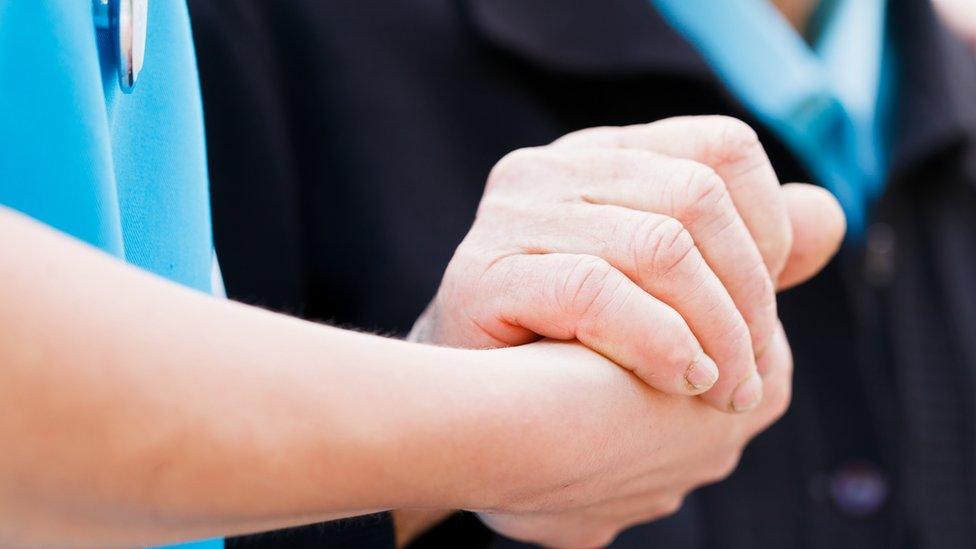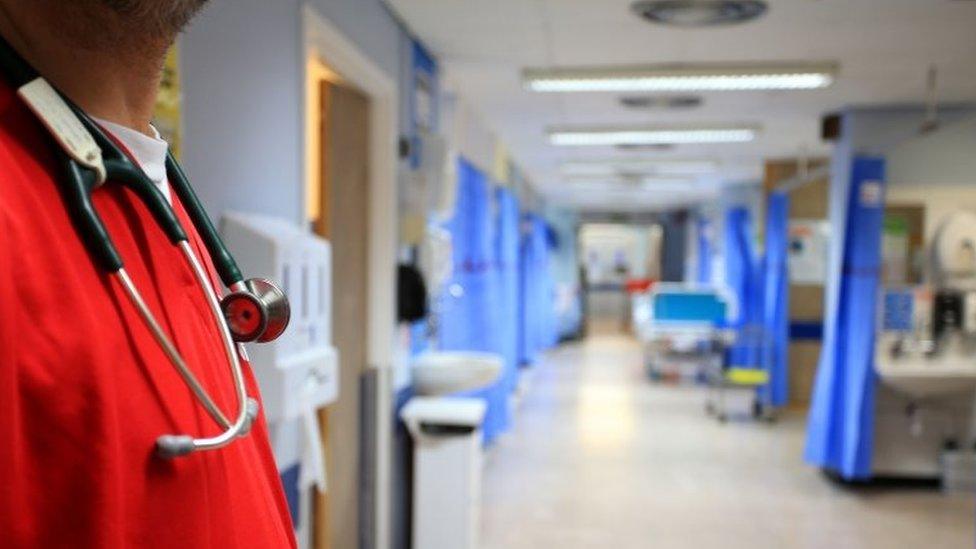Autumn Statement: Missed opportunity for NHS?
- Published

There are concerns that social care is underfunded
The NHS and social care were barely mentioned in the chancellor's Autumn Statement, and health groups and think tanks lined up to condemn Philip Hammond within minutes of him sitting down in the Commons.
So was there a failure to resolve a looming crisis? Or did Philip Hammond simply feel that in a difficult financial climate, there were other more pressing priorities?
Warnings about cuts in social-care spending in England and the impact on the health service have become more intense in recent weeks.
There has been a steep rise in the number of patients fit to leave hospitals, but who continue to occupy beds because of problems arranging social care.
That has concentrated minds, and NHS leaders indicated they were prepared to accept there would be no new money for health as long as social care, run by local authorities, received a financial boost.
But that did not materialise. The pleas had fallen on deaf ears.
"Missed opportunity" was a verdict on the statement much repeated by health think tanks and medical profession leaders.
The Royal College of Emergency Medicine even warned government inaction would put lives at risk.
Social-care chiefs warned the chancellor's failure to act would mean more care homes closing and growing gaps in the market.
In response to Labour claims in the Commons that there was "looming chaos" for health and social care services in England, Mr Hammond said there was a programme of investment in the NHS being delivered.

Lack of social care is putting pressure on hospital beds
He repeated the government line that an extra £10bn annually was being allocated to the NHS budget by the year 2020-21.
He said the government would work with service leaders to ensure the money was spent effectively, underlining his view that it was not so much about the volume of investment as how it was deployed.
The new clashes over money for the NHS came as the UK Statistics Authority called for more clarity by the government in its references to the extra investment.
The stats watchdog observed that the £10bn increase for "NHS funding" in England was over a six year period from 2014-15, external.
However, total health spending, including public health, which has seen cuts, has not grown as fast.
The Statistics Authority noted that, according to Treasury figures, over a four-year period up to 2019-20 it would increase by £2.9bn.
Ed Humpherson of the UK Statistics Authority, said he would ask the Treasury to present estimates for NHS England and total health spending separately.
He has urged officials to "ensure clarity around sources, time periods and what is being measured".
The stresses and strains on NHS finances have been well documented, and the debate about how much money the government is investing to help tackle the problems is rising up the political agenda.
A report from the National Audit Office, external highlighted again the financial pressures and argued that the problems were "endemic and not sustainable".
The NAO report, unusually, confirmed the view there were tensions at the highest levels of Whitehall.
It talked of perceived differences between the government line that funding had been adequate and in line with what health service leaders asked for and NHS England itself.
There was an eye-catching conclusion: "Confronted as NHS England is by the pressures of rising demand for services, these signs of differences do not help build a confident feel about the future of the NHS."
Those "differences" seem unlikely to fade away.
The NHS England leadership that had called for more funding for social care only to be disappointed will hardly be thrilled by the Autumn Statement.
The chancellor may find he has a lot more explaining to do.
Find out the cost of care in your area
- Published18 November 2016

- Published21 November 2016

- Published13 October 2016

- Published11 October 2016

- Published8 September 2016

- Published15 September 2016












